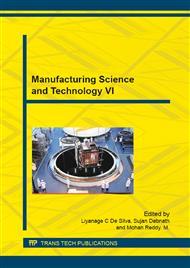p.1073
p.1078
p.1082
p.1087
p.1101
p.1109
p.1114
p.1119
p.1123
On PID-Controller Parameters Neural Tuner Usage for Nonlinear Plants Control
Abstract:
The problem of a control system efficiency increasing for nonlinear plant control is considered. It is shown that proposed neural tuner based on neural networks is an efficient approach to solve the problem of PID-controller parameters online tuning. The backpropagation method is used to train the network. This method is modified by adding a rule base containing conditions on choosing learning rate for neurons. Experiments are made for plant models with various parameters values (with a time constant about 103 seconds and 101 seconds). The required quality for each transient is determined. The system with the neural tuner allows to achieve 10% decreasing of the amount of time and 9% of energy-savings in comparison with the conventional PID-controller.
Info:
Periodical:
Pages:
1101-1106
Citation:
Online since:
September 2015
Authors:
Keywords:
Price:
Сopyright:
© 2015 Trans Tech Publications Ltd. All Rights Reserved
Share:
Citation:


